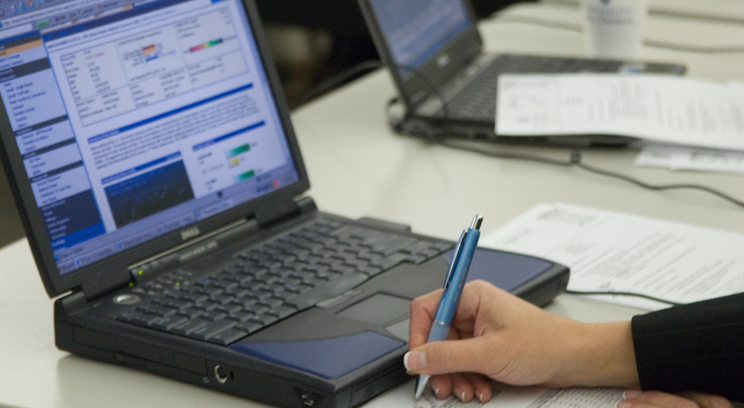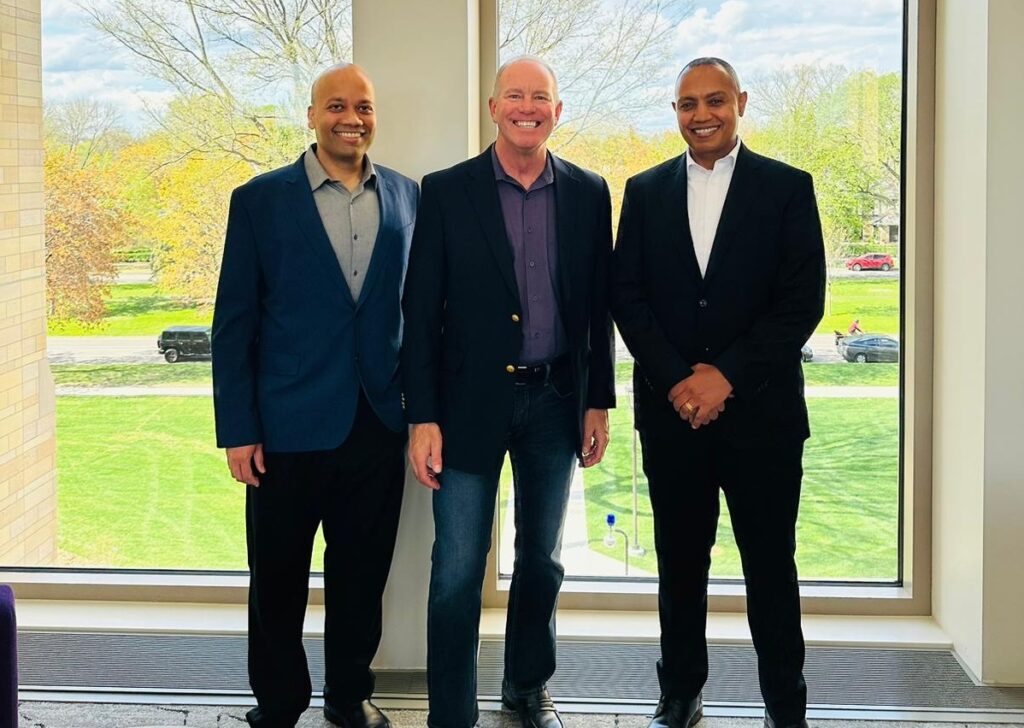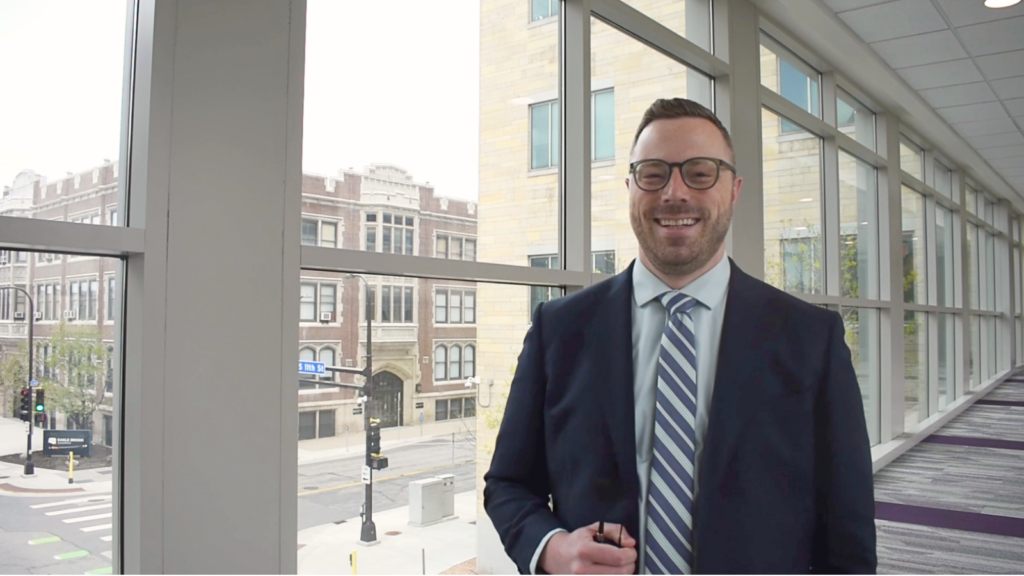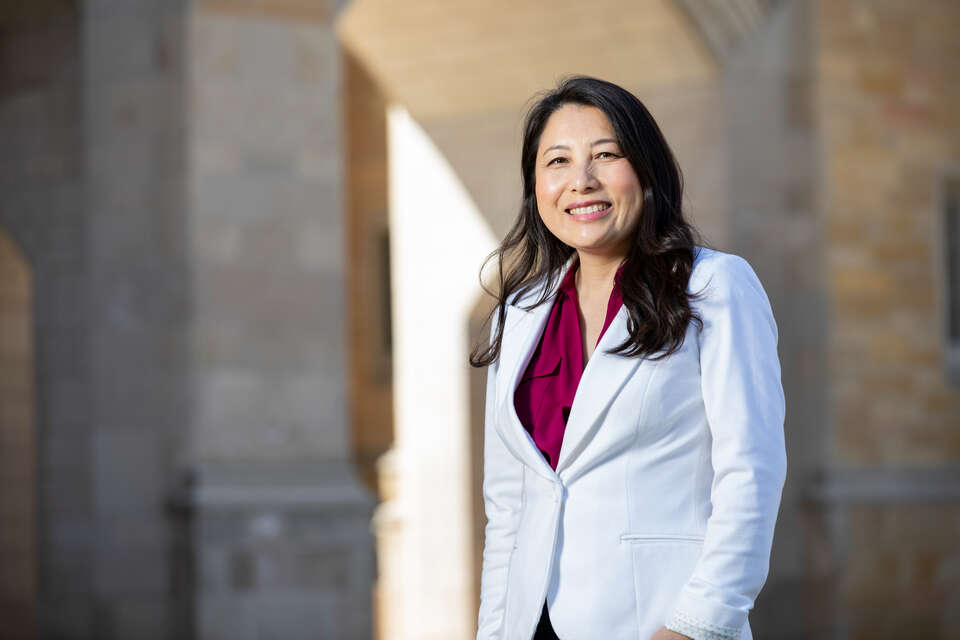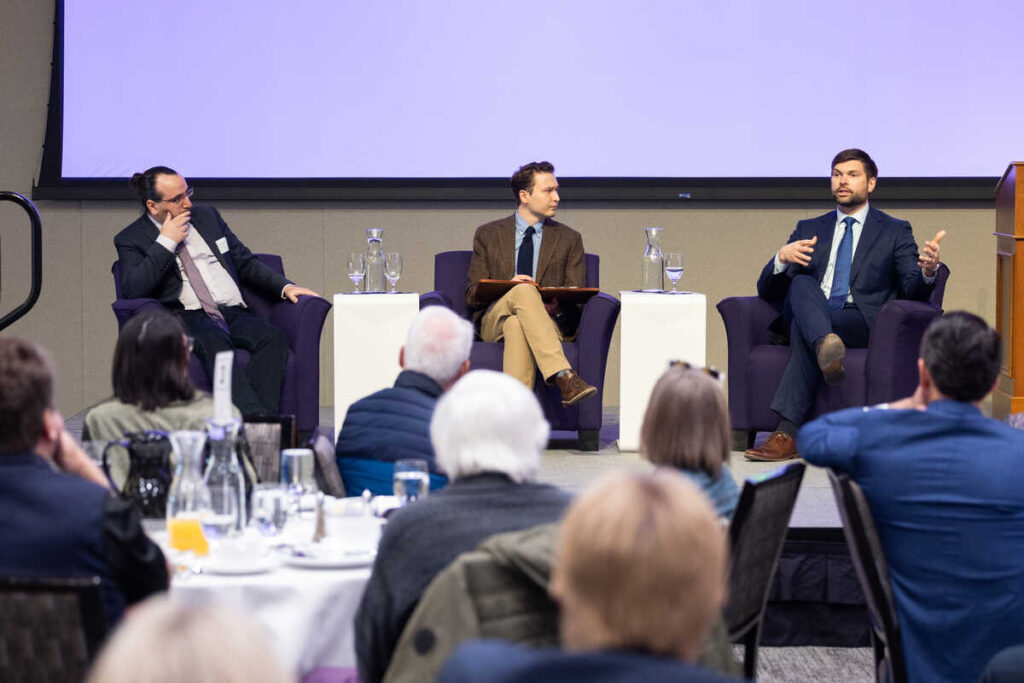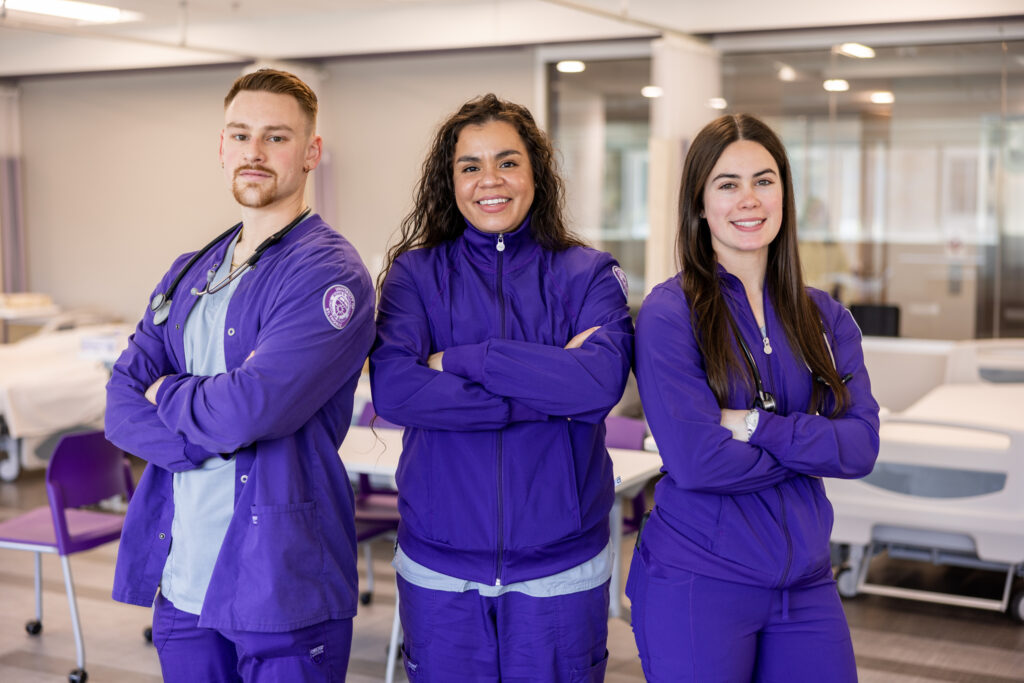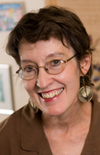
Susan Alexander
Well, there was a microphone. Still, it was a strong, candid conversation in the Opus Hall Great Room on Monday – and the topic was online learning.
Sam Levy, Mary Reichardt, Ann Johnson and Jenn Haas introduced the topic with current trends (Sam), online program options with Bisk Education (Mary), Faculty Development resources (Ann) and technical support (Jenn).
Then the group addressed the question: what should we do online?
A question on assessment of effectiveness led to a spirited discussion. Dr. Johnson stressed that Faculty Development strongly encourages assessment, and Dr. Levy reported national studies that show no difference in effectiveness. Carol Bagley reported great success with blended courses. Jo Montie, director of the special education online program, explained retention and completion rate tracking for the program.
Ken Goodpaster, business ethics, asked about the focus on graduate programs. Terence Pitre, accounting, observed that grad students are self-starters online while undergrads may require quite a bit of gentle prodding.
Mark Salisbury, the new dean of the College of Education, Leadership and Counseling, added his experiences from the University of New Mexico, where online courses filled much faster than face-to-face courses. When asked why, his answer was PARKING! Also, working folks like to get home, put on the bunny slippers and have dinner with the family before curling up with the computer. If they could do this, they could put up with being dropped on the Internet.
There was much discussion of resources available and the time needed (extensive) for course development. New online teachers were advised to start slow and listen to those with experience.
Attention turned to the selection process for putting courses and programs online. Programs differ. Ea Porter pointed out that people hiring professional counselors do not want to hire someone with online coursework only. Who wants a counselor who avoids other people?
Dr. Pitre put the same thought a bit more colorfully: “It’s the spandex problem. Spandex comes in every size, but that doesn’t mean everyone should wear it.” Those considering an online course should remember that students do not want to listen to pontification online; rather, course work is interaction with 35 individuals.
My favorite part was when Dr. Reichardt reported on false rumors spinning around campus. No, faculty will not be forced to teach online. And no, the undergrad program will not go online.
I wanted to ask Mary about the rumor that St. Thomas would move lock, stock and PowerPoint to Bisk headquarters in Tampa for January, but I didn’t want to hear the answer. I like my false hopes.
